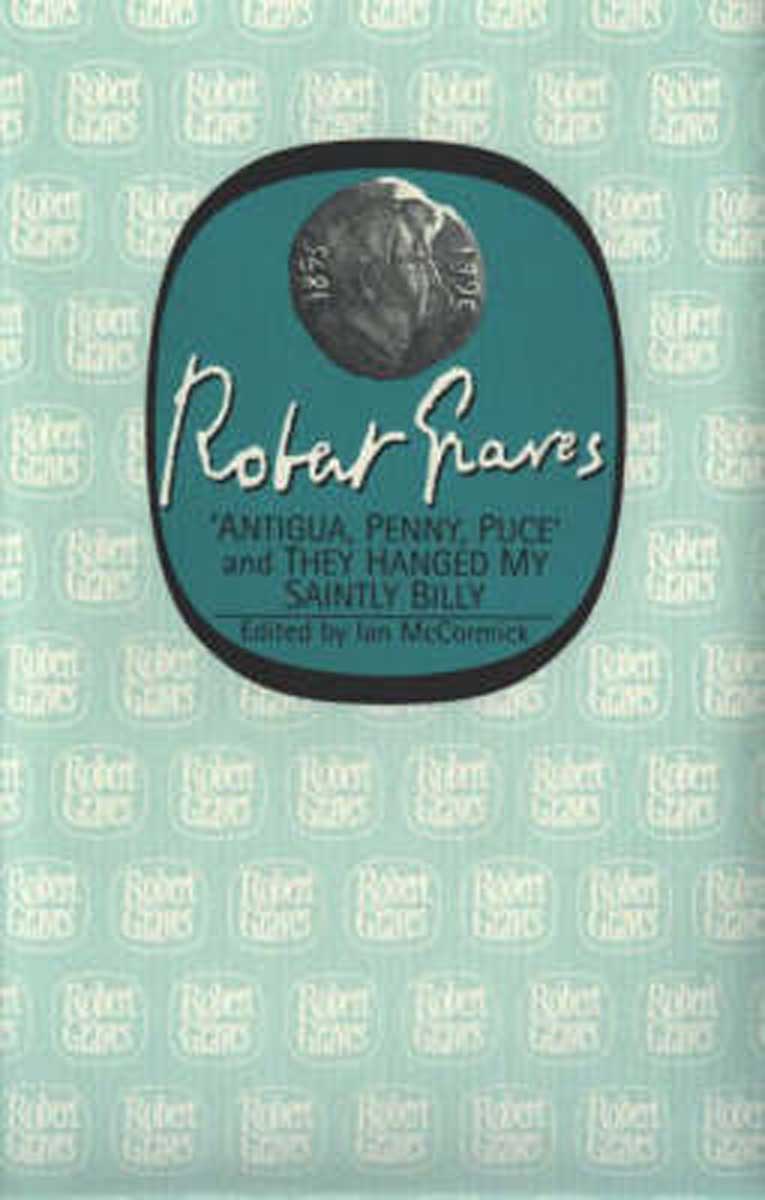Antigua, Penny, Puce and They Hanged my Saintly Billy
"Antigua, Penny, Puce" (1937), a barbed tale of sibling rivalry, gave its title to a never-issued one penny puce-and-white stamp from Antigua with George VI's portrait on it and three puce pigs eating at a puce trough. Jane and Oliver are the siblings who fight for possession of the stamp. Philip Larkin praisede it as "unique among novels' for 'its variety of original invention, not to mention its humour". It can be read as a political parable about colonialism and the conflict in Spain between Communists and the Fascists. "They Hanged my Saintly Billy" (1957), Graves' last major novel, is subtitled "The Life and Death of Dr William Palmer" and, like much of Graves' fiction, is based on fact, in this case the life of a notorious surgeon, racehorse owner and a confessed forger who got girls into trouble, doped horses, robbed a few people. But, Graves' novel asks, was he a poisoner? Palmer's actual trial took place in 1856, and the novel, as we would expect of a writer with Gfraves' classic skills, has all the immediacy and spiciness of contemporary life. It is told through interviews with Palmer's friends and foes, and we are involved in piecing the tale together.
About the author
Robert Graves (1895-1985), poet, classical scholar, novelist, and critic, was one of the greatest writers of the 20th Century. Athough he produced over 100 books he is perhaps best known for the novel "I, Claudius" (1934), "The White Goddess" (1948) and "Greek Myths" (1955).
Robert Graves was born in Wimbledon, South London. His father, Alfred Percival Graves, was a school inspector, and his mother, Amalie von Ranke Graves, was a great-niece of the German historian Leopold von Ranke (1795-1866). He was educated at Charterhouse, and awarded a B. Litt by St. John's College, Oxford after his return from World war I, where he served alsongside Siegfried Sassoon.
Robert Graves died in 1985 in Deja, the Majorcan village he had made his home (with the exception of the Spanish Civil War and the Second World War) since 1929.
Robert Graves was born in Wimbledon, South London. His father, Alfred Percival Graves, was a school inspector, and his mother, Amalie von Ranke Graves, was a great-niece of the German historian Leopold von Ranke (1795-1866). He was educated at Charterhouse, and awarded a B. Litt by St. John's College, Oxford after his return from World war I, where he served alsongside Siegfried Sassoon.
Robert Graves died in 1985 in Deja, the Majorcan village he had made his home (with the exception of the Spanish Civil War and the Second World War) since 1929.


